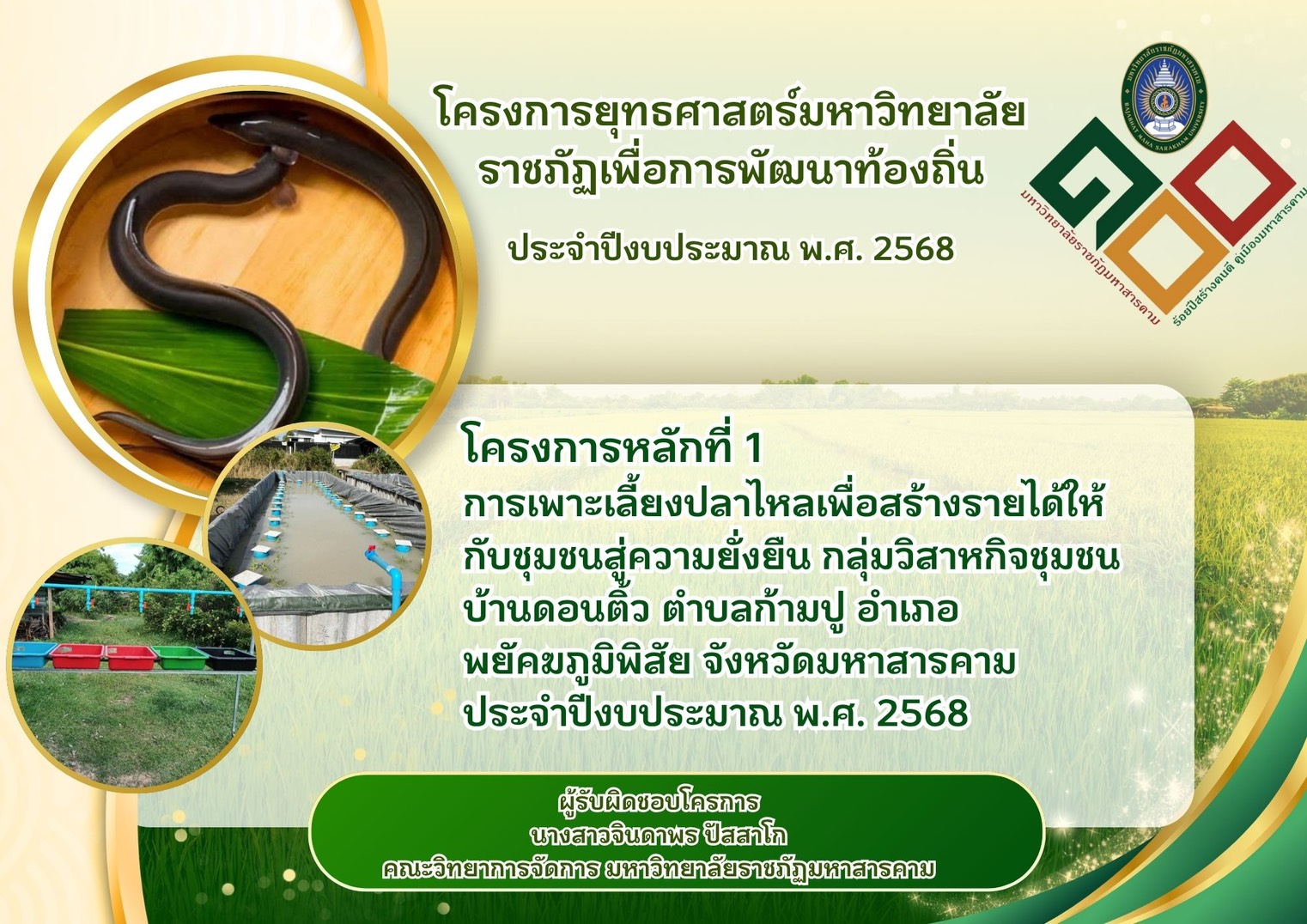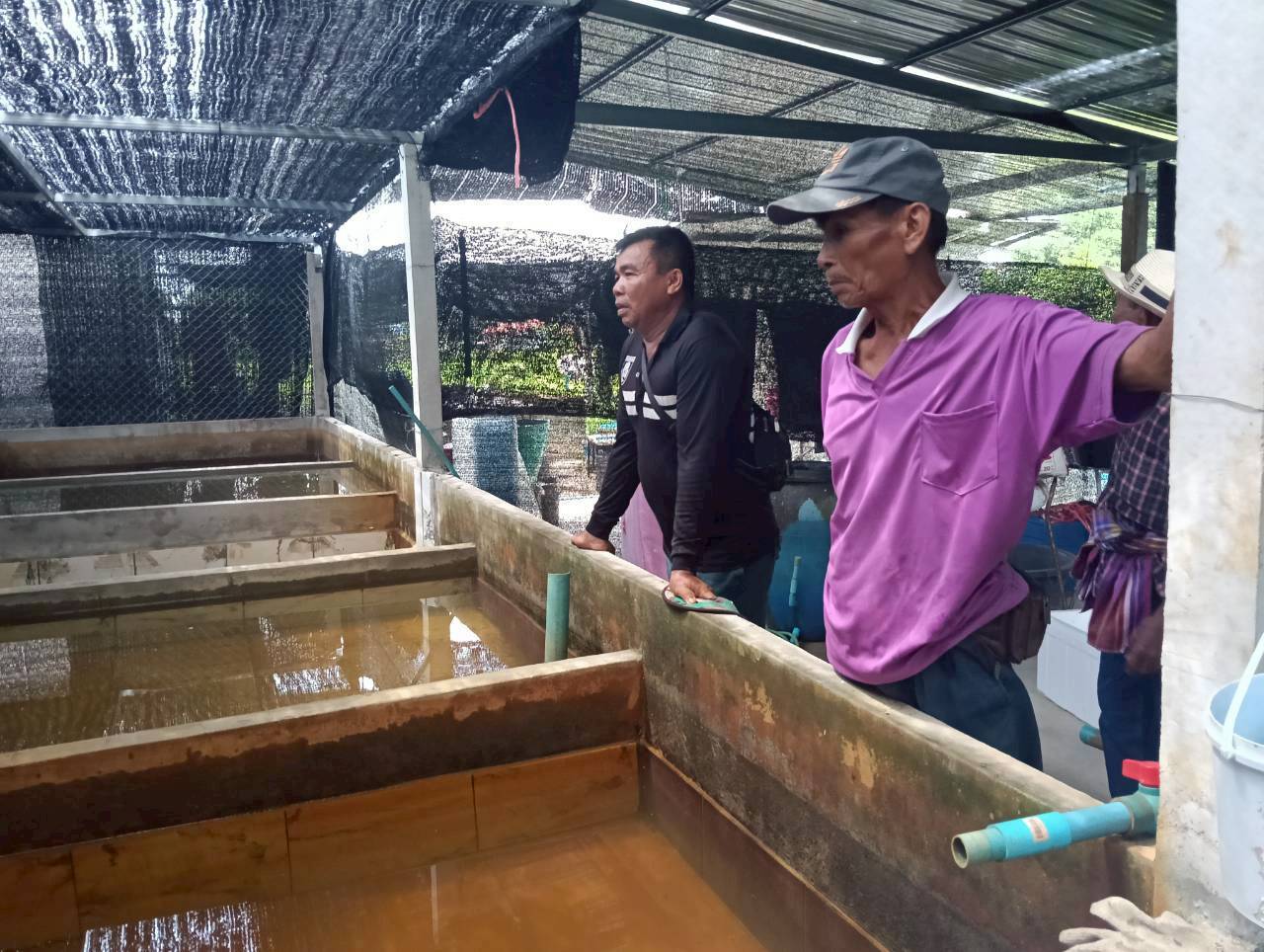
Career Development and Income Enhancement for the “Ban Don Tew – Pla Lai Tam Ngern” Community Enterprise Group
ผู้รับผิดชอบ ให้ข้อมูล : Jindaporn Passako
SDG ที่เกี่ยวข้อง
เป้าหมายย่อยความสอดคล้องกับยุทธศาสตร์มหาวิทยาลัย : พันธกิจสัมพันธ์เพื่อการพัฒนาท้องถิ่นอย่างสร้างสรรค
แหล่งงบประมาณ : งบประมาณแผ่นดิน
กลุ่มเป้าหมาย : ชุมชน
Project Implementation Area : Don Tew Village ตำบล Kam Pu อำเภอ Phayakkhaphum Phisai จังหวัด Maha Sarakham 44110
Project Duration: June 7, 2025 – September 7, 2025
Objectives :
1. To study eel farming in concrete ponds and lined ponds.
2. To increase community income, address poverty, and improve living standards for residents.
3. To study costs and analyze community income and expenses to encourage savings.
4. To expand marketing channels and product distribution.
Activities :
Project Preparation:
1. Hold a preparatory meeting to assign responsibilities for community studies, develop the project plan, map the community, plan participation in community activities, and learn about community life.
2. Conduct field visits to explain the project to the community and study local problems and needs.
3. Analyze problems, design knowledge transfer, and apply technology and strategies to address issues.
4. Review, analyze, and synthesize information while learning alongside the community.
5. Present problem-solving approaches together with the community and summarize solutions.
6. Transfer knowledge about eel farming to generate sustainable income for the community.
Knowledge Transfer through Practical Training:
1. Workshop on preparing concrete ponds.
2. Workshop on eel farming techniques, care, and feeding.
Standards Development and Marketing Promotion:
1. Workshop on technical skills to promote product sales.
2. Workshop on developing a web application to expand distribution channels.
3. Workshop on household accounting, income and expense tracking, and cost calculation.
Number of project participants: 30 people
Project Budget: 100,000 Baht
Results :
Economic aspect: Increased income within the community and availability of household revolving funds.
Social aspect: Reduced inequality by developing a self-reliant and sustainable community.
Educational aspect: Community members gained knowledge from training, applicable to their livelihoods.
Environmental aspect: Strengthened community resilience, contributing to sustainable development.
Results society :
Community income increased.
Participation :
Integration of project activities into teaching and learning
Project continuity :
Continuous follow-up and ongoing knowledge transfer to the community
Problems obstacles :
Community members still lack advanced skills, access to funding, tools, and equipment needed to develop their livelihoods.
Improvement :
Provide continuous knowledge transfer and training to the community.
Suggestions :
-




